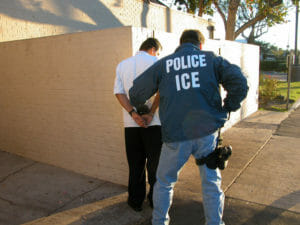Sweeping Our Inhumanity Under the Rug
By simply deciding that something is a "state secret," the Bush government has avoided answering for its brutal treatment of innocent victims in the war on terror. This is a perversion of the principle of American justice.WASHINGTON — Khaled el-Masri is not a state secret. He was no secret when he traveled to the United States last November to hear his case argued before a federal appeals court in Richmond, Va. Nor was he hidden when he visited Capitol Hill and met with lawmakers to talk about his mistaken abduction by American authorities.
Masri isn’t a terrorist or a suspected terrorist. Otherwise, American officials would never have let him enter the country, let alone visit Congress. Masri, a German citizen who has been accused of no wrongdoing, laid out the details of his U.S. visit in a Los Angeles Times column last March.
But last week, the U.S. Supreme Court declared him, in essence, to be a nonperson.
In another perverse ruling that lets the Bush administration hide its most perverse anti-terrorism policies beneath dubious legal arguments, the high court refused to hear Masri’s appeal. His case is a “state secret,” the administration claims, that must be kept private even though it has gained international press attention, an official investigation by the German government and the acknowledgment of Secretary of State Condoleezza Rice that the U.S. had erred.
Masri is perhaps the best-known individual to have become ensnared in the Bush administration’s program of “extraordinary rendition,” under which people are snatched from the streets and spirited away to secret prisons for interrogation, or worse. Masri was seized from a tourist bus en route to Macedonia in 2003. He was held there for five months before being turned over to Americans and flown to a prison in Afghanistan. There, he says, he was beaten, stripped, sodomized, photographed and injected with drugs. Then, as suddenly as he’d been seized, Masri was released and dropped on a mountain road along the border between Albania and Macedonia. He was handed a box with his belongings, including his passport.
“It’s not about secrets,” says one of Masri’s attorneys, Ben Wizner of the American Civil Liberties Union. “This is about whether an innocent, foreign victim of these anti-terror policies can ever have a day in court. If the answer is no for Masri, who is it yes for?”
As things stand now, the U.S. government can seize an innocent individual, abuse him, later admit that it had held the person in error — but then declare the whole episode a state secret and so block the wronged man’s case from ever being heard. Masri was never allowed to request a single piece of evidence, or ask to hear from a witness. He has written that he brought the lawsuit because “I wanted to know why America harmed me.” Now he never will.
Among the other cases the administration claims simply cannot go forward are those involving the National Security Agency’s surveillance of Americans’ electronic communications, a surveillance that Bush ordered to be conducted without warrants. The administration claims a blanket state-secrets privilege in those cases — going so far as to argue that the individuals who are suing don’t have legal cause standing to sue since they can’t show they were subject to eavesdropping. The through-the-looking-glass argument is this: Evidence that might show they were spied upon can’t be obtained because it is secret.
The shroud of secrecy the president wishes to impose on these cases is thicker and broader than those that have been used in prosecutions of real terrorists at real criminal trials in the past. Federal judges have inspected classified material in private, and decided whether it can be disclosed to the defense or presented in open court. The procedures safeguard both secrecy and justice.
Now justice has been cast off as a political inconvenience.
The overreaching use of the state secrets privilege is yet another of Bush’s legal excesses that Congress must finally curtail. The Constitution Project has brought together a coalition of unlikely allies — conservatives and libertarians, moderates and liberals — to ask that lawmakers make clear that protecting secrets is not incompatible with pursuing a legitimate court case. “We need to have checks and balances here,” says Sharon Bradford Franklin, the group’s senior counsel. “We’re not saying there should be no state-secrets privilege, but that doesn’t mean you have to shut all these plaintiffs out of court completely.”
Lawmakers have an overflowing agenda of Bush’s legal — or illegal — gambits in the war on terror to address. But because the United States was founded on the principle that it would treat the accused with justice, we must extend justice to the innocent, too.
Marie Cocco’s e-mail address is mariecocco(at)washpost.com.
© 2007, Washington Post Writers Group
Dig, Root, GrowThis year, we’re all on shaky ground, and the need for independent journalism has never been greater. A new administration is openly attacking free press — and the stakes couldn’t be higher.
Your support is more than a donation. It helps us dig deeper into hidden truths, root out corruption and misinformation, and grow an informed, resilient community.
Independent journalism like Truthdig doesn't just report the news — it helps cultivate a better future.
Your tax-deductible gift powers fearless reporting and uncompromising analysis. Together, we can protect democracy and expose the stories that must be told.
This spring, stand with our journalists.
Dig. Root. Grow. Cultivate a better future.
Donate today.





You need to be a supporter to comment.
There are currently no responses to this article.
Be the first to respond.